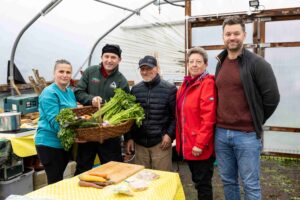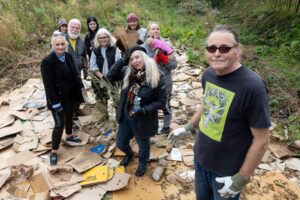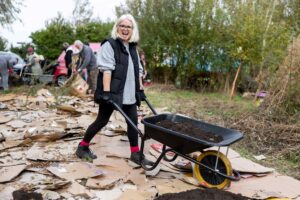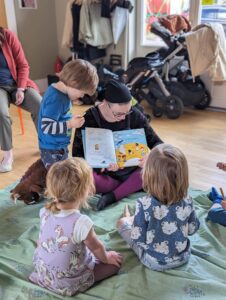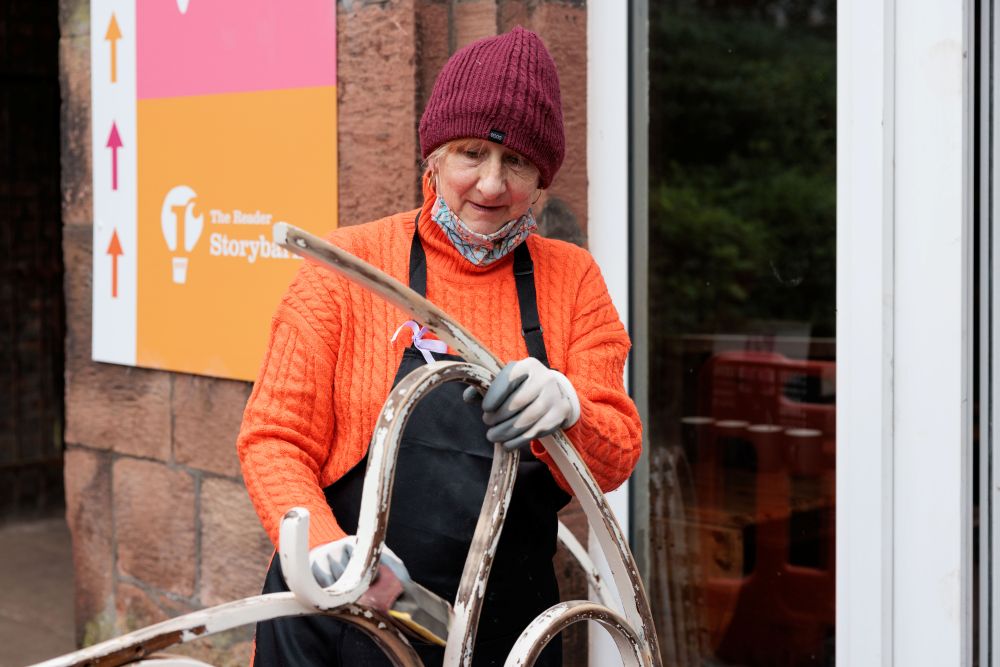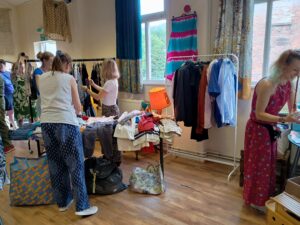Community organisations across the Liverpool City Region are being invited to apply for a share of £165,000 to deliver projects that reduce waste and support a more sustainable future.
The Zero Waste Community Fund 2026/27, managed by Merseyside Recycling & Waste Authority (MRWA) in partnership with Veolia, will support community and voluntary groups, social enterprises and not-for-profit organisations to develop initiatives that cut household waste, increase recycling and reuse, and help reduce carbon emissions.
Funding of up to £30,000 is available for projects working across at least four local authority areas in the City Region. Smaller grants, ranging from £1,000 to £8,000, are available for projects focused within a single local authority area.
Councillor Catie Page, Chairperson of Merseyside Recycling & Waste Authority (MRWA), said: “We place huge value on the work of community groups across our region. They are rooted in their communities and play a vital role in driving positive environmental change. By supporting local action on waste, we can protect the environment while helping people better understand the value of resources and the importance of reducing waste.”
Projects must address one or more of MRWA’s five priority household waste streams: waste electrical and electronic equipment (WEEE), food, textiles, plastics and furniture. An analysis of waste in the City Region shows that much more of these materials could be reused or recycled[1]. Projects may also include other household waste materials, such as paper or metals.
Previous projects supported by the Community Fund have included local recycling guides, lending libraries, repair cafés, cookery clubs to reduce food waste and promote healthy eating, fruit and vegetable gleaning schemes, furniture restoration projects for charitable resale, and the refurbishment of unwanted rugs for reuse.
Among the local initiatives which have benefitted from the Zero Waste Community Fund is the Syrian British Cultural Centre CIC. Their project, ‘From Waste to Creativity: Empowering Communities through Recycling and Innovation,’ was awarded £26,000 in 2025/26 to champion sustainable practices across the Liverpool City Region. By engaging schools and community hubs through an Eco Innovation Lab and a Green Entrepreneurship Academy, the project is driving lasting behavioural change. Their work focuses on high-impact areas such as textile repair, furniture and appliance refurbishment, and household food waste reduction.
Malik Al Shhadat, General Manager at the Centre, said: “Our From Waste to Creativity project has encouraged people to rethink waste by showing them how to reduce, reuse, and recycle in practical and creative ways. Through workshops, awareness campaigns, and educational resources, our aim has been to make sustainable waste management a natural part of everyday life.
“Activities have engaged a diverse group of participants from various ethnic and national backgrounds, including British, Asian, Arab, Kurdish, and African communities – reflecting the multicultural fabric of the Liverpool City Region.”
Interested groups can apply to the 2026/27 Community Fund at https://www.merseysidewda.gov.uk/zero-waste-community-fund/
The deadline for submissions is 12.00pm Tuesday 10th March 2026.
Successful projects should receive the funding by May 2026 and will have to deliver their schemes by March 2027.
Organisations interested in this year’s Community Fund can:
-
Apply online at https://www.merseysidewda.gov.uk/zero-waste-community-fund/
- Contact the Authority:
Community.fund@merseysidewda.gov.uk
DEADLINE FOR SUBMISSION OF APPLICATIONS:
12.00pm Tuesday 10th March 2026
ENDS
Note to editors
Image captions: attached pictures show a waste reuse workshop at the Syrian British Culture Centre CIC, Liverpool, December 2025.
[1] Merseyside and Halton Waste Composition Analysis 2021/22
- The £165,000 comes from the Zero Waste Community Fund 2026/27, which has been running annually since 2006.
- The impact of the 2024/25 Fund saw 16 projects stop 754 tonnes of materials from going to waste, held 763 events and training sessions, and engaged with over 8000 people across the Liverpool City Region.
- The Zero Waste Community Fund is open to community and voluntary sector groups, faith groups, not for profit social enterprises and schools in Merseyside and Halton.
- Merseyside Recycling and Waste Authority is responsible for the disposal of municipal waste on Merseyside. Established in 1986 following the abolition of Merseyside County Council, it is a statutory Authority that works with all the local authorities on Merseyside – Knowsley, Liverpool, Sefton, St Helens and Wirral. MRWA takes a lead in advocating recycling, waste minimisation and safe and effective disposal of waste for Merseyside residents.

